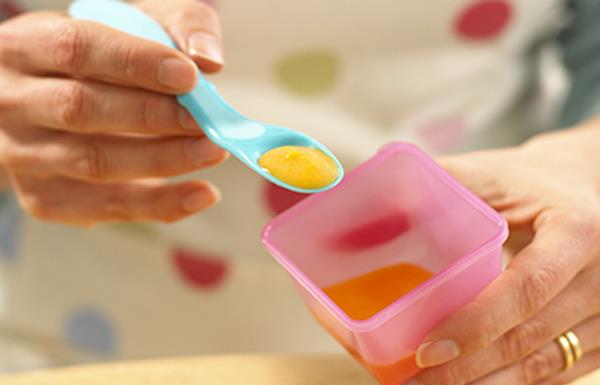Not only making it difficult for the baby, but eating solids also makes many mothers suffer from fatigue, especially in the beginning stage. What are you having problems with when offering solids? Join MarryBaby through this "nan start" stage spectacularly thanks to the tips from the experts below!
If you do not know how and lack patience, the first time solids can become a tough battle between mother and baby. Each family will have different problems, but MarryBaby will go through some common problems and ask an expert to tell you the solution!

Most mothers have difficulty when they first offer solids
Problem # 1: Babies don't want to try new foods
When faced with this situation, the most common and common response for mothers is to try to force their babies to eat well. However, according to experts, the best solution for this case is to let your child do what he likes, but persistently introduce new foods to your baby in the future. Statistics show that, for a child to learn or become interested in something, it may take at least 10 times. So, if the first failure, the mother can "revenge" the next time.
Note for moms: In one day, you should only introduce your child a new taste. And if your baby doesn't like it, you should wait 3-4 days before giving it to him again. Let your baby try new food at breakfast, about 10 o'clock. If your baby doesn't like and cries, a nap right after will help him forget his morning discomfort and be calmer.
Problem # 2: Baby eats "like turtles"
There are many reasons why your baby eats slowly, such as the television distracts the baby or the baby is not really hungry. First of all, mothers should find out and solve the objective reasons that make children eat slowly. If the condition still does not improve, the mother can actively stop the meal as soon as it reaches the 30-minute mark and in the next meal, the mother can feed the baby a little earlier.
According to experts, the longest time for a baby's meal should be only 30 minutes. Eating too long will only cause the food to cool and lose its substance. At the same time, will "shorten" the time to the next meal, causing the baby to continue to lose appetite .
Problem # 3: The baby is full of food
In fact, during the first year, most babies eat less and break a lot. The situation of food scattered throughout the house, even all over the child is very normal. Instead of scolding the baby, the mother should actively limit the possible "damage". For example, mothers can put newspaper on the floor before feeding their children, let them wear bibs to prevent dirty food on the body, use dishes to prevent spillage ...
Small to the mother: According to researches of many experts in the world, the time the baby is messing around is also the time when the baby is searching and exploring. The more she discovers, the more she develops her thinking ability and becomes more intelligent. So, instead of being upset because the child is dirty, the mother can comfort herself that this is a way to help the baby smarter.

Is a baby messy smart? Do you know that the messy, untidy, and orderly nature of the child is a sign that the baby is intelligent? Convincing evidence right here, mother read it right away!
Problem # 4: Baby is vomiting
When you first encounter this situation, you will be very worried, right? But according to experts, vomiting is a reflex of the body, helping to prevent the risk of choking , choking food. In this case, the mother should double-check whether she is feeding her baby too much at one time or if she has inserted the spoon too deep into the baby's mouth. In addition, when you change the dilution and consistency of food, many babies will also have a vomiting reflex. If this is the case, you can go through the “transition” more slowly, starting with very dilute foods, and gradually increasing the consistency.













